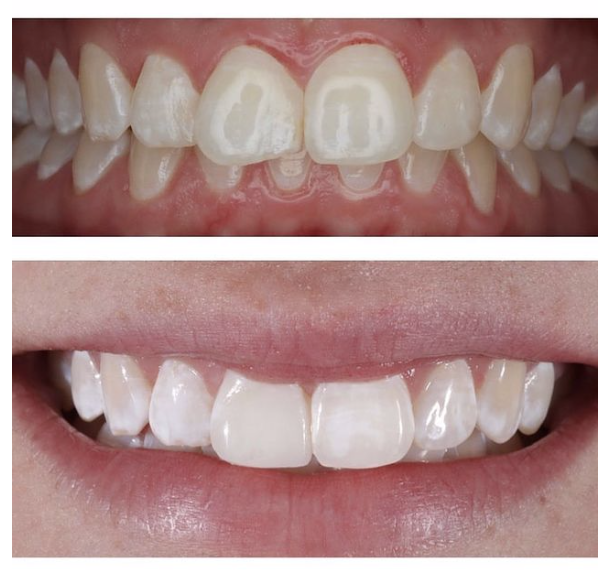What is composite resin bonding?
Composite resin bonding, also known as dental bonding, is a cosmetic dentistry procedure that involves the application of a tooth-colored resin material to the surface of a tooth to improve its appearance and functionality. This procedure is commonly used to repair minor dental imperfections and can provide an affordable and relatively quick solution to various dental issues. Here's an overview of composite resin bonding:
Material: The bonding material is a tooth-colored composite resin made of a mixture of plastic and glass. It can be shaded to match the color of your natural teeth, making it a discreet choice for dental repairs.
Uses: Dental bonding can be used to address various cosmetic and functional concerns, including:
Repairing chipped or cracked teeth.
Closing small gaps between teeth.
Fixing discolored or stained teeth.
Reshaping misaligned or uneven teeth.
Protecting exposed tooth roots when gums recede.
Filling small cavities (tooth-colored fillings).
Procedure:
Preparation: The dentist will prepare the tooth by roughening its surface and applying a conditioning solution to help the bonding material adhere.
Bonding: The dentist will apply the composite resin in layers, shaping and sculpting it as needed to achieve the desired result.
Curing: Each layer is hardened with a special ultraviolet light or laser to bond it to the tooth's surface.
Final adjustments: After all layers are in place, the dentist will trim, shape, and polish the bonded material to blend seamlessly with your natural teeth.
Advantages:
Non-invasive: Bonding typically requires minimal removal of tooth enamel, making it a conservative approach.
Quick procedure: Dental bonding can often be completed in a single visit.
Aesthetic results: The composite resin closely matches the color and texture of natural teeth, providing a seamless appearance.
Cost-effective: It is generally more affordable than some other cosmetic dental procedures.
Limitations:
Less durable: Composite resin is not as strong or long-lasting as some other dental restorations like porcelain veneers or crowns. It may need maintenance or replacement over time.
Susceptible to staining: Bonding material can become discolored over time, especially if you consume staining substances like coffee or red wine.
Not suitable for extensive repairs: Bonding is best for minor dental issues; more significant problems may require other treatments.
Dental bonding is a versatile and relatively simple way to improve the appearance and functionality of
your teeth. It's essential to consult with a dentist to determine if dental bonding is the right option for your specific dental needs and to discuss the potential benefits and limitations of the procedure.

